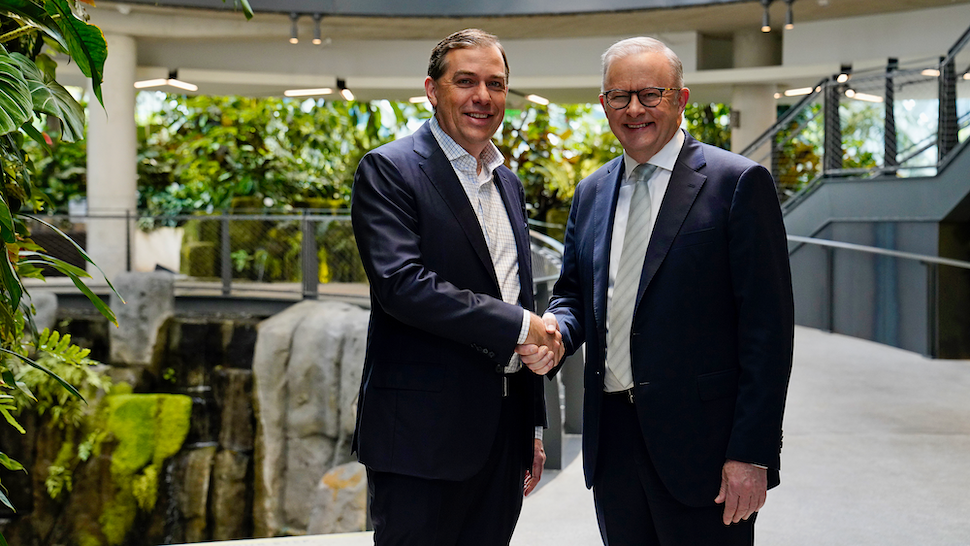Emerging Trends in Technology: From Smart Glasses to AI Innovations
Author: Tech Correspondent

In today's fast-paced digital landscape, technology continues to evolve at an unprecedented rate. The convergence of artificial intelligence (AI), wearable technology, and major corporate investments is shaping the future of communication, entertainment, and daily life. This article delves into some of the latest trends and products in this exciting realm.
One of the most notable recent announcements comes from Meta, the parent company of Facebook, which is set to expand its lineup of smart glasses. Teamed with Oakley, a renowned brand known for its sports and lifestyle eyewear, Meta aims to introduce a new pair of smart glasses by June 20, 2025. This collaboration follows the company’s earlier venture with Ray-Ban, which successfully combined fashionable eyewear with modern technology.

Conceptual image illustrating the new smart glasses by Meta and Oakley, showcasing the blend of technology and style.
These new smart glasses will likely inherit features from the previous Meta Ray-Bans, including built-in cameras and AI capabilities, enabling users to interact with their environment in more meaningful ways. Speculations suggest that these glasses might cater to athletes and active individuals, particularly cyclists, who welcome advanced technology that supports their performance and lifestyle.
In addition to hardware advancements, AI is playing a pivotal role in improving user experiences across sectors. Recently, the Hong Kong Observatory revealed that AI predictions for Typhoon Wutip outperformed those made by traditional computer models. This claim emphasizes the increasing reliability of AI in critical situations, showcasing its capacity to process vast data sets quickly while delivering more accurate forecasts.
On another front, Meta has taken steps to address privacy concerns within its AI app. Following widespread reporting of users inadvertently sharing personal or sensitive information, the company has implemented a new warning for users before they post to a public feed. This change highlights ongoing challenges in the tech landscape concerning user privacy and data security.

First teaser image of the Oakley and Meta smart glasses launch, suggesting an innovative design.
As new smart devices infiltrate our daily lives, the importance of understanding their impact cannot be overstated. Companies like Apple are also positioning themselves to compete, with reports indicating their intention to develop augmented reality glasses featuring similar functionalities to Meta's offerings.
In the broader corporate sphere, noteworthy market movements are afoot, such as SoftBank's recent sale of its T-Mobile shares for $4.8 billion. This decision indicates a strategic pivot towards investing heavily in AI technologies, reflecting a broader trend within major companies to prioritize artificial intelligence solutions in their strategies.
As new AI tools emerge, including OpenAI's recent release of its o3 model—which offers improved performance at an 80% lower cost—the tech community is abuzz with discussions on how these innovations will shape various industries. Apple also made headlines at the June 2025 Worldwide Developers Conference by announcing new features that allow third-party developers access to its foundational AI technologies.
Despite these advancements, challenges remain in ensuring user experience and safety in the application of AI technologies. Recent reports revealed a wave of bans on Instagram, with users believing that AI-driven algorithms are behind their suspensions. This predicament epitomizes the need for clearer communication from tech companies regarding how their AI systems operate.

Illustration of AWS planned investment in Australia, highlighting the growth of cloud infrastructure.
Moreover, Amazon's commitment to expanding its cloud infrastructure in Australia underscores the escalating race for market dominance in technology services. The investment of AU$20 billion is one of the company's largest moves yet, representing a substantial commitment to enhancing data center capabilities while integrating clean energy initiatives.
In conclusion, as we navigate through these exciting times in technology, it becomes imperative to remain vigilant and informed. The intersection of AI, smart devices, and significant corporate investments is reshaping not just how we interact with the world around us but also how we understand and manage the implications of such rapid changes.
As Meta and Oakley prepare to unveil their smart glasses and innovation continues across the tech landscape, one thing is certain: the future promises an array of exciting advancements that will undoubtedly influence our personal and professional lives for years to come.